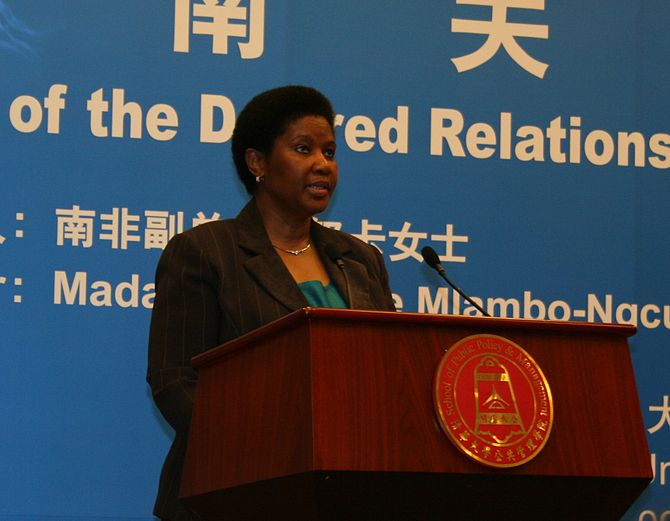Source: Forbes
The young women and girls from Africa have spoken. Their message was delivered in a statement during the just ended African Union (A.U) Summit in Addis Ababa, Ethiopia which took place from 20 to 31 January. More than 30 African heads of state gathered on Thursday for the opening session of 22nd A.U Heads of State meeting under the theme "agriculture and food security".
The summit was preceded by the meeting of the A.U Peace and Security Council, where leaders deliberated on conflicts in Central African Republic, Somalia and South Sudan.
Approximately 50 young women and girls representing 14 African countries convened at the Young Women's Forum during the A.U Summit under the theme: "Transforming Africa's Agriculture for Shared Prosperity and Improved Livelihoods, through Harnessing Opportunities for Inclusive Growth and Sustainable Development." The group of young women and girls in their statement, urged African leaders to take strong actions and develop concrete solutions in order for continent to harness the potential of its demographic dividend. The statement was delivered during an event that brought together 50 girls and young women from across Africa, in conversation with government leaders, heads of multilateral and non-governmental organizations and representatives from the private sector. The event was organized by the World YWCA, United Nations Women and the Nike Foundation. Titled 'The Future Young Women and Girls Want', the statement called on African leaders to consider priorities of Africa's youthful demography as they determine the African Union's common position for the future development agenda, after the Millennium Development Goals expire in 2015.
Livia Oliver, 23 from South Sudan said "Leaders and mediators must listen to us girls and young women – we can tell them the truth about conflict, and other issues facing Africa." Olivier who arrived in Addis Ababa after a five-day journey from the embattled country, reiterated "I was born in war, I grew up in war." The group focused its statement around education, social and economic development, health, agriculture and climate justice, offering specific prescriptions under each theme. Making up half of the continent's population, African women and girls are at the epicenter of Africa's development. The statement served as a invitation to harness the potential of African women and girls by including them in the decision-making process.
"When we talk about any adverse situation in Africa, women are directly affected," the former President of Nigeria, Olusegun Obasanjo was quoted as saying in response to the statement. "There are areas or places in Africa where because girls are girls, they are deprived the benefits of education. My sisters, I am with you, for the rights of women and particularly for the rights of our children for education and for empowerment," he added. The women and girls, in their statement promised to hold leaders accountable to commitments made at national, regional and international levels.
On receiving the statement, United Nations Women Executive Director, Phumzile Mlambo-Ngcuka said: "Women and girls can fight gender-based violence and take on a leadership role." And in reference to the focus of discussions on agriculture and food security, the former deputy president of South Africa said, "Agriculture for Africa offers an opportunity for economic prosperity, food security, poverty eradication, skills in science and technology and economic empowerment for women and girls."
"This has been a conversation of accountability" said Nyaradzayi Gumbonzvanda, General Secretary of the World YWCA. "Girls and young women are the future of Africa, and can lead the continent's renaissance – but they must be given the opportunity to do so. We hope that the direct engagement of girls and young women with leaders will show their courage, determination and vision."
